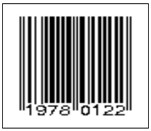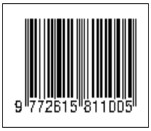UPAYA PENANGGULANGAN TINDAK PIDANA PELAKU PENANGKAPAN PENYU BERDASARKAN UNDANG-UNDANG REPUBLIK INDONESIA NOMOR 5 TAHUN 1990 TENTANG KONSERVASI SUMBER DAYA ALAM HAYATI DAN EKOSISTEMNYA (STUDI KASUS DI DIREKTORAT KEPOLISIAN PERAIRAN DAN UDARA POLDA NTB)
Abstract
The purpose of this study is to 1) describe the legal arrangements related to the crime of turtle catching perpetrators. 2) describe the countermeasures carried out by the Ditpolairud Polda NTB in dealing with the perpetrators of the crime of catching turtles. The benefit of this research is to provide insight into ideas for the development of legal science, especially regarding legal arrangements related to the criminal act of catching turtles. The data were obtained from the results of library and field research, and were processed and analyzed using qualitative methods. This research is based on library materials from the results of interviews with informants, namely the Office of Ditpolairud Polda NTB. Based on the results of research related to the legal arrangements for the criminal act of catching turtles, it is clearly regulated in the Law of the Republic of Indonesia Number 5 of 1990 wherein the Law has been regulated in Article 40 Paragraph (2), violators of this Law are threatened with a maximum prison sentence 5 years and a maximum fine of IDR 100,000,000. In the countermeasures carried out by the Ditpolairud Polda NTB in dealing with the perpetrators of the crime of catching turtles, this was carried out in 3 ways, namely Preemptive, Preventive and Repressive. The implications of this research are, 1) It is expected that law enforcement officers will be more active in providing counseling and coaching to coastal communities. 2) It is expected that law enforcement officials will routinely carry out patrols in areas prone to the crime of catching turtles 3) It is expected that law enforcement officials will take firm action by giving appropriate punishments so as to provide a deterrent effect to the perpetrators of the crime of catching turtles in accordance with applicable laws and regulations
Keywords
Full Text:
PDFReferences
Bonger, W.A, (1995). Pengantar Tentang Krimonologi terjemahan R. A. Koesnoen, PT. Pembangunan, Jakarta.
Dahuri, Rokhim, (2003). Keanekaragaman Hayati, PT. Gramedia Utama, Jakarta.
Departemen Kehutanan. (2000). Himpunan Peraturan Perundang-Undangan Bidang Konservasi Sumber Daya Alam, BKSDA Jawa Timur 1, Surabaya.
Departemen Pendidikan Nasional, (2005). Kamus Besar Bahasa Indonesia, Balai Pustaka, Jakarta.
Huda Chairul.( 2006), Dari Tiada Pidana Tanpa Kesalahan Menuju Kepada Tiada Pertanggungjawaban Pidana Tanpa Kesalahan, Pranada Media, Jakarta.
KEHATI. (2000). Materi Kursus Inventarisasi flora dan fauna Taman Nasional Meru Betiri, Malang.
Koesnadi Hardjasoemantri, (1991). Hukum Perlindungan Lingkungan; Konservasi Sumber Daya Alam Hayati dan Ekosistemnya, Gadjah Mada University Press, Yogyakarta.
Sukamade. (1997). Kumpulan Materi MBSC IX Meru Betiri Service Camp.
Moeljatno, (2000). Azas-azas Hukum Pidana, PT. Rineka Cipta, Jakarta.
Muladi, (1998). “Pembaharuaan Hukum Pidana yang berkualitas Indoenesia”, Jurnal Masalah-Masalah Hukum Nomor 2 tahun 1988, Fakultas Hukum, Universitas Diponogoro, Semarang.
Nawawi Arief Barda, (1998). Beberapa Aspek Kebijaksanaan Penegakan dan Pengembangan Hukum Pidana, Citra Aditya Bakti, Bandung
Pamulardi Bambang. (2005). Hukum Kehutanan dan Pembangunan Bidang Kehutanan, PT Raja Grafindo Persada: Jakarta.
Peraturan Menteri Lingkungan Hidup Dan Kehutanan Republik Indonesia Nomor P.106/MENLHK/SETJEN/KUM.1/12/2018 Tentang Perubahan Kedua Atas Peraturan Menteri Lingkungan Hidup dan Kehutanan Nomor P.20/MENLHK/SETJEN/KUM.1/6/2018 Tentang Jenis Tumbuhan Dan Satwa Yang Dilindungi.
Peraturan Pemerintah Republik Indonesia Nomor 7 Tahun 1999 Tentang Pengawetan Jenis Tumbuhan dan Satwa.
Prodjodikoro Wirjono. (2003). Asas-Asas Hukum Pidana Indonesia, Refika Aditama, Bandung.
Sjahdeini Sutan Remy, (2006). Pertanggungjawaban Pidana Koorporasi, Gaffiti Pers, Jakarta.
Soekanto Soerjono. (1980). Sosiologi Hukum dalam Masyarakat, Rajawali Press, Jakarta.
Topo Santoso. (2002). Kriminologi, PT Grafindo Raja Persada, Jakarta.
Undang-Undang Dasar 1945.
Undang-Undang Republik Indonesia Nomor 1 Tahun 1946 Tentang Kitab Undang- Undang Hukum Pidana.
Undang-Undang Republik Indonesia Nomor 13 Tahun 1961 tentang Ketentuan-Ketentuan Pokok Kepolisian Negara Republik Indonesia.
Undang-Undang Republik Indonesia Nomor 2 Tahun 2002 Tentang Kepolisian Negara Republik Indonesia.
Undang-Undang Republik Indonesia Nomor 32 Tahun 2009 Tentang Perlindungan dan Pengelolaan Lingkungan Hidup.
Undang-Undang Republik Indonesia Nomor 4 Tahun 1982 Tentang Ketentuan-Ketentuan Pokok Pengelolaan Lingkungan Hidup.
Undang-Undang Republik Indonesia Nomor 5 Tahun 1967 Tentang Ketentuan-Ketentuan Pokok Kehutanan.
Undang-Undang Republik Indonesia Nomor 5 Tahun 1990 Tentang Konservasi Sumber Daya Alam Hayati dan Ekosistemnya.
Undang-undang Republik Indonesia Nomor 8 Tahun 1981 tentang Kitab Undang-Undang Hukum Acara Pidana.
Wiryono. (2013). Pengantar Ilmu Lingkungan, Pertelon Media: Bengkulu.
DOI: https://doi.org/10.35327/gara.v17i2.448
Refbacks
- There are currently no refbacks.
Copyright (c) 2023 GANEC SWARA

This work is licensed under a Creative Commons Attribution-ShareAlike 4.0 International License.










